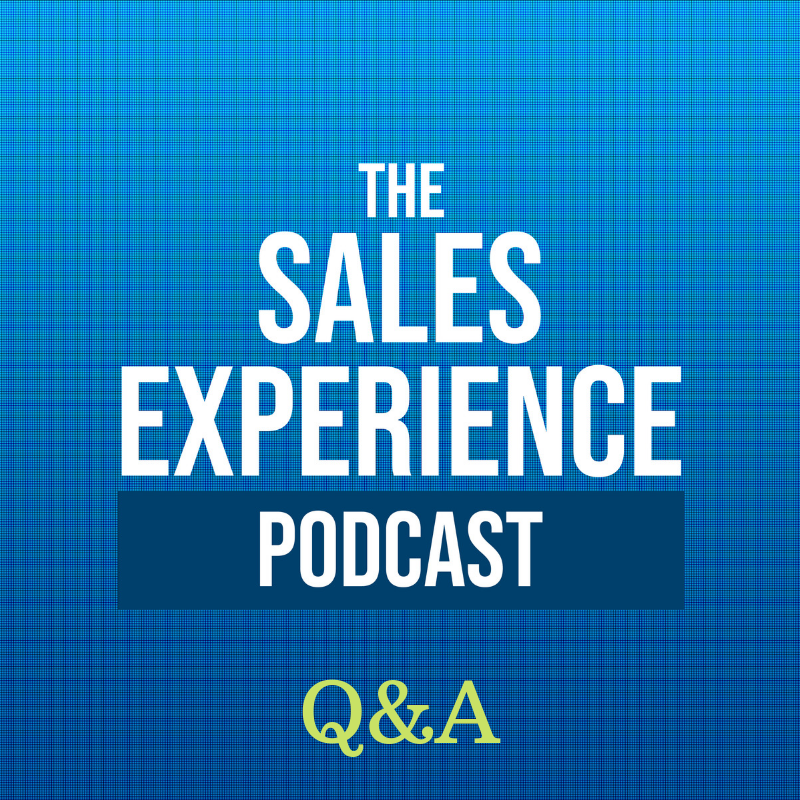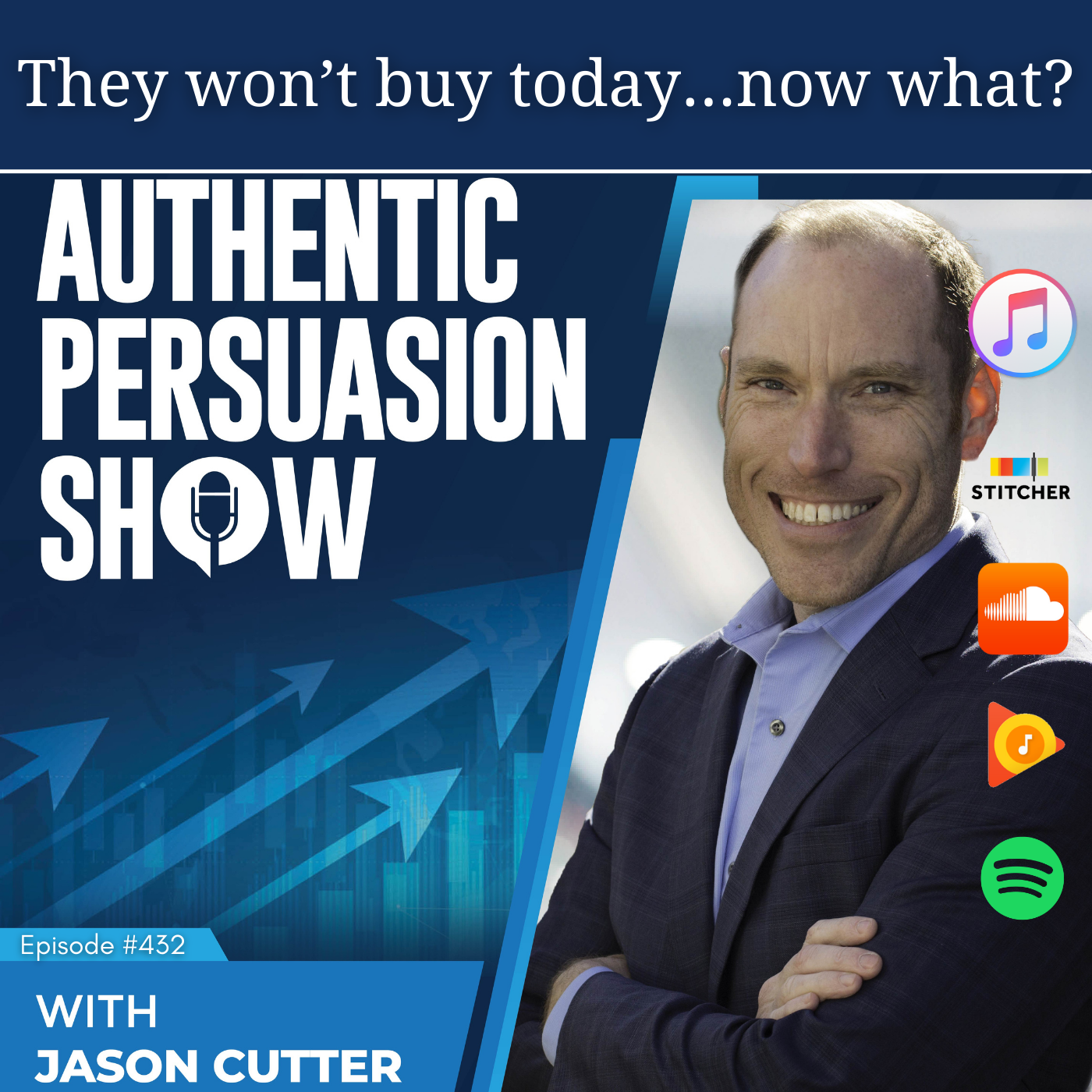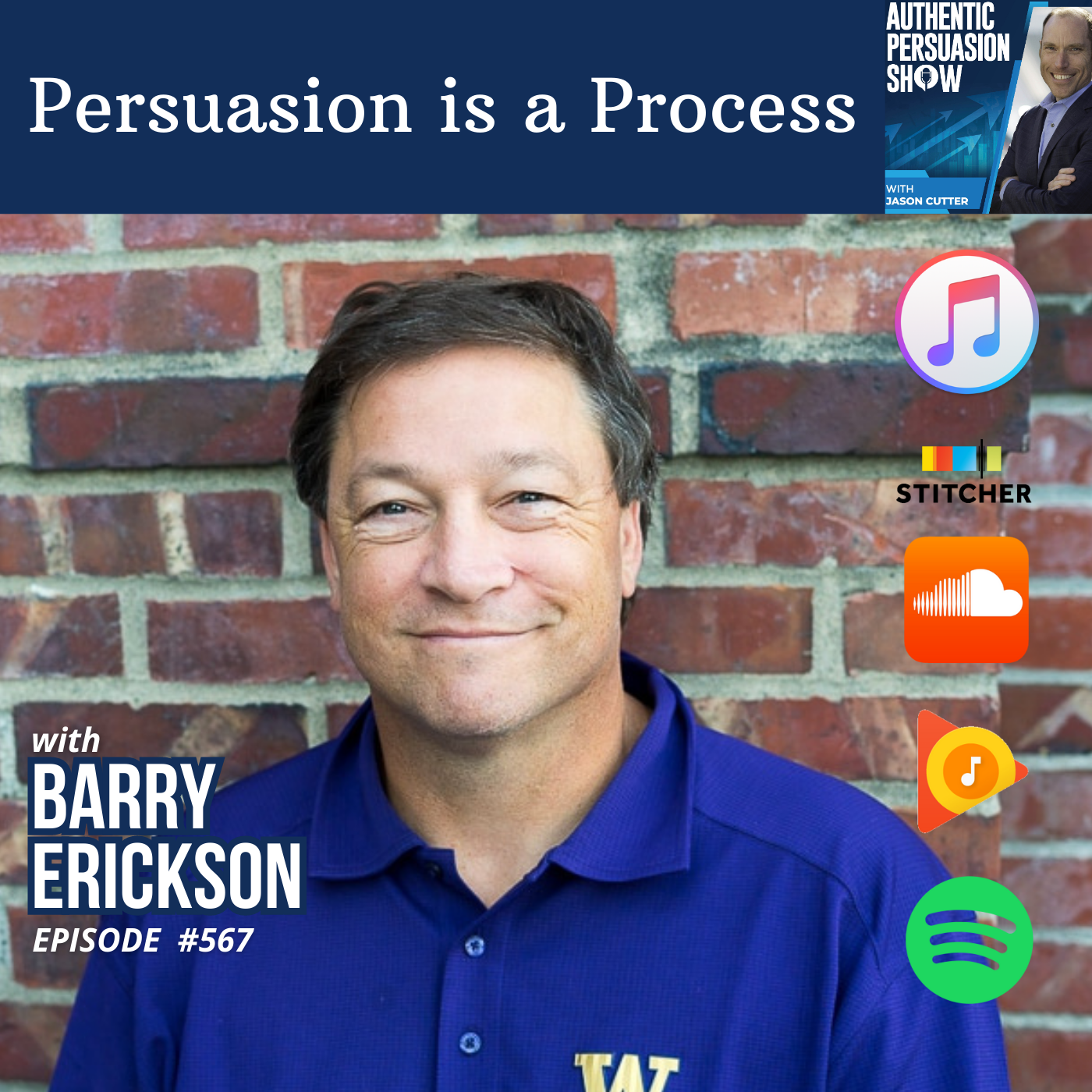Episode Transcript
Rylee Meek: A catalyst almost you're not manipulating, somebody to make a decision They don't want to make it's just people don't make decisions Right people just they need a reason to make a decision and that's How we train all of our sales reps is that same process.
And as when you had interviewed me on your show, we're all about know and trust, which is that authenticity piece of it. And then being able to, help them make a decision that is for the benefit of them. Through the, through that sales process, if it's not the right decision, it's not the product for them.
It's there's nothing wrong with a no. But we're trying to just continually, move them through that process. So I love it, man. So what this is a this is something that you're working with your clients right now, or is it something you're rolling out here or what is, what's the process of.
Jason Cutter: So this is something I have been teaching and coaching and training sales reps for years and years without having a formal title to it. If you look at everything in the program I'm developing and the book, that's almost ready to be published. Everything in there is the framework and the tools and the steps and everything that I have done.
Done with people. And even in my own career, now I have this title to it and explanation that makes it easy to understand, but it's something I've just always done with people is really, figure out how they can be authentic, how they can use that, be themselves. And then persuasion part is full speed ahead.
Somebody is a good fit for your product or service, then go like you've got to get them out of their own way. Yeah. I love it, man.
Rylee Meek: I love it. So who is, I know you work with the, a number of different clients and maybe industries. But who do you think, or maybe even past successes that you've been working with?
Who is probably your ideal client or who does this system work best for any of our audiences that's listening?
Jason Cutter: The fundamental thing that I've focused on and where I've really found my niche inside of a niche and you have your niche inside of a niche inside of a niche. And I'm the same way is for me.
It's, my focus is really on inside sales, telephone sales. Everything in life is sales and sales is sales. I could do anything, but I really enjoy inside sales, telephone sales. Because that's harder when you're not face to face, man that's a different layer of what you've got to be able to bring to the table and then anything that requires some kind of consultative kind of sale where there's discovery and there's a diagnosis, right?
Like I really focus on helping sales reps. Look at themselves almost like a doctor, right? Where they've got to ask questions, discover, what's going on with that prospect, their patient, and then, diagnose it and then give the prescription and then move them forward, right? Like a doctor is a perfect example.
A doctor doesn't say, okay your leg's broke. Here's what we need to do. We need to fix your leg. Would you like to do that? Or do you want to go away and think about it? Do you want to call me next Thursday? No, it's okay, boom, your leg is broken. Here's the thing. Any questions? Good. Okay, let's go.
And then they just fix it. And with inside sales people and companies where they're doing something where there's some kind of process, it's not a order online. It's not an instant. It's not an order taking type of thing that needs a sales professional who can listen and pay attention.
Like you said, no and trust and build all that framework, which is just basic fundamentals. And then move somebody towards the close.
Rylee Meek: Yeah, I love it, man. Obviously, with what's going on is we were talking before to my model is all out group events, talking to people face to face, not over the phone, right?
And so we really had to pivot and we're, all of our reps are on the phone now doing zoom calls and things like that. So I've definitely noticed this, it is a different process in working, face to face and still being able to take people on an emotional journey, attaching that need to it emotionally or that want.
So You gotta be good on the phone. Like it's a different beast to tackle. I've definitely noticed that. So you should help me out here.
Jason Cutter: And it's tough, right? Because when, a lot of, I don't know the percentage, cause I'm not always good at those kinds of stats, but it's like most of what we convey in a conversation is.
physical, right? It's body language. It's, it's emotions. It's our facial expressions. And when you cut all of that out, there's a lot of video going on right now, but normally if you cut that out and you're just doing phone sales, you have to listen amazingly well and you have to be very sensitive.
To what you say and then what they say, and we almost listen for what's not being said versus when you're sitting across from somebody and you can see them hesitate or recoil over something or ponder, and you can react instead. You're just like, okay, is it silent? They're their phone die. Are they freaking out?
Are they happy? Are they grabbing their credit card? What is going on right now? And so it's a different world. Yeah.
Rylee Meek: We've been working through that just simple things that a lot of people don't even think of. Like when a client is. Asking a question and a simple, that sigh on the other end, like you gotta be able to understand you're still speaking to them, even though you're not saying words, but those size Whoa, you just completely, now you're like, they're a cumbersome to you and you've lost that sales.
I imagine you, that stuff you teach throughout your whole process.
Jason Cutter: Yeah. Because when you're face to face, this is just totally on the side, but when you're face to face with somebody. The pressure's on to be, like, to have this, not necessarily an image I'm not talking about being fake, I'm just like, a courtesy and having a conversation, right?
Being face to face, it's very rare, unless you're actually frustrated with someone, or you're just really struggling. You're not going to sigh like that. You're not going to roll your eyes. You're just going to like, especially if you're in a sales role, right? Because your livelihood depends on being a professional in that moment.
So you're not going to do that maybe with your spouse or your significant other, that's driving you crazy, but not with in a sales role, but then over the phone, you forget that. And it's okay they're not looking at me. So I can just relax. And yeah, that that messes up a lot of stuff for people for sure.
Rylee Meek: Yeah. We've been learning that. But speaking of, just, what's going on, people stuck in their homes How has that affected your business or has it, thriving? Are you suffering like a lot of others or where, where are you at with this?
Jason Cutter: So there's two ends of the spectrum that I'm seeing is there's the companies who provide a value to generally, to businesses.
Most consumers are holding back, but to businesses that are still servicing customers, right? So I have a couple of clients who are literally of value to businesses still. And they're in high demand and they're actually doing better because things are shifting, right? So one company focuses on helping businesses with referrals and it's okay, now referrals are more important.
So like they're going, they're busy. It's in the same thing where if you had zoom stock or you look at the prevalence of video conferencing now versus before there's some services where like this remote from home kind of isolated world. Facilities. So some clients that are just like busy and still doing well in the short term, and they should do okay.
Other ones that are definitely reeling from being an extra item or service that it was a nice to have, but not necessary in times of survival right now, like People are just holding back. All of us are, even myself none of us are immune from being like, I don't think I need to spend money on that.
Or that's not important. I'm not worried about it. But the biggest thing that I'm seeing, and this is, what makes me excited. It's the silver lining of this unfortunate situation. But what makes me excited is I've talked to companies for so long and a lot of them just. Didn't want help. The economy was good for 10 11 years when things are good and you have a sales team, more sales will make up for the fact that you don't really have your stuff together, right?
Like you don't have systems, you don't have processes, you have a lot of turnover. Like maybe you're not making a lot of money per sale, but you're making enough. And the bottom line looks good because the economy is good. When the economy goes bad. And everyone gets punched. It's like it really shines a light on.
Did you have a business? Did you not? Did you have a system? Did you not? Could you pivot? Do you have a culture? Do you have a company culture that would support you now that they're at home? Like yourself. You're pivoting like crazy, but your team, your company, your culture, your vision, your mission, like it's all in line where your team's okay, we were aiming here.
Now we aim here. Full speed ahead. We're winning some companies out there. I've been talking to them for years. They didn't want to admit they have a problem. Now they're admitting they have a problem and, they want help.
Rylee Meek: Yeah, absolutely. As you mentioned it, we've definitely exposed our weaknesses here.
And I think right now, those that are not sitting back and letting life happen, but are still charging at it and completing. Their books, their courses, they're, doing these zoom calls, pivoting. Those are the companies, the business owners, the entrepreneurs, the sales reps that are going to come out stronger than ever once this, we get back to quote unquote, normal life.
I think that's a big thing that people just, some people. Are just sitting back and hoping, waiting for that money to come in from the government or whatever, but those that are really hunkering down and focusing on working and getting those systems in place. So should this ever happen again, God forbid, I can't imagine it would, but they're going to be ready to go and have those systems in place.
Should something like this ever happen again?
Jason Cutter: Yeah. Or dealing with the new norm, right? Depending on how long this goes, some of this will be the new norm. Maybe not all of it, right? People may go back to face, may go back to going to conferences and trade shows, or going to the mall, or some of it just might literally disappear.
And the ones who can make the most out of this time will be adapted to either way. The future goes
![[Replay] The Sales Conversion, with Rylee Meek](https://episodes.castos.com/salesexperiencepodcast/images/Sales-Converstion.png)


